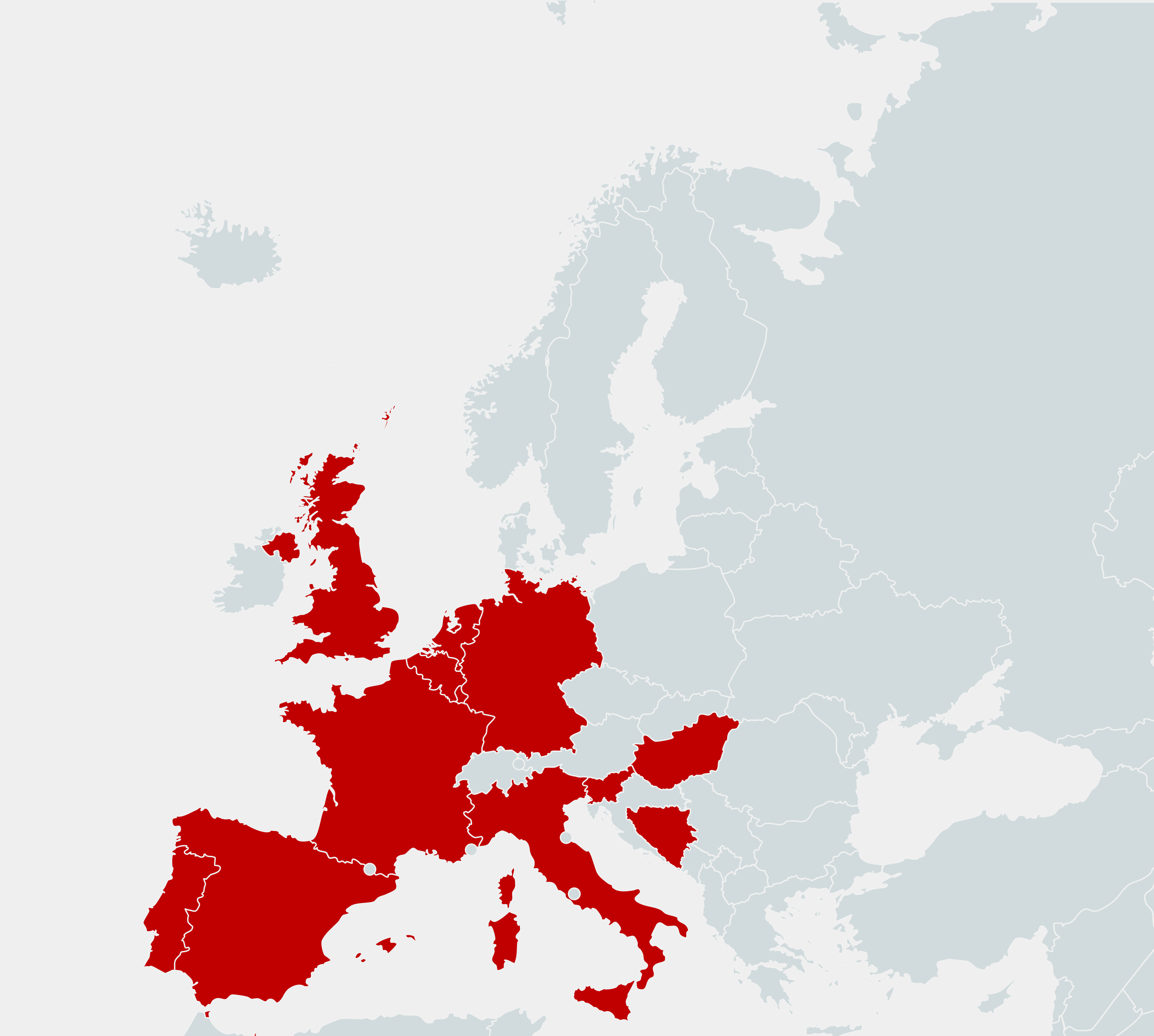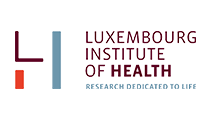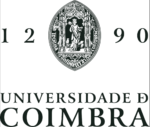Consortium
Consortium partners
The COVIRNA Consortium is composed of 15 partners from 12 countries committed to develop a diagnostic tool to identify COVID-19 patients at risk of developing fatal cardiovascular complications. The partner organisations represent complementary expertise including academia, research, industry, health managers and healthcare professionals.
Luxembourg Institute of Health (LIH)
The Luxembourg Institute of Health is a public biomedical research organisation for translational biomedical research. Striving for excellence, its researchers, by their creativity, enthusiasm and commitment, generate knowledge on disease mechanisms and contribute to the development of new diagnostics, innovative therapies and clinical applications that impact the healthcare of Luxembourgish and European citizens. The activities of the Luxembourg Institute of Health are developed within the following research topics: Infection and Immunity, Oncology, Population Health.
Firalis SA (Firalis)
Firalis S.A. is a French biotechnology SME, specialized in the development of innovative biomarkers with a particular focus on cardiovascular disease, arthritic/rheumatoid diseases and Alzheimer’s disease. Firalis combines service activities (sample testing and integrative analysis of clinical study data, biomarker R & D strategy consulting, etc.) with research and development activities, thanks to its state-of-the-art analytical platform technology.
Université du Luxembourg (UNILU)
The University of Luxembourg (UNILU) is a multilingual, international and research-oriented university founded in 2003. The Luxembourg Centre for Systems Biomedicine (LCSB) is an interdisciplinary research center established at the University in 2009. It is accelerating biomedical research by closing the link between systems biology and medical research. At the LCSB, the Bioinformatics Core facility, led by Prof. Reinhard Schneider, is responsible for the efficient data flow within and between the experimental, theoretical-computational and medical oriented groups.
Imperial College of Science and Technology Medicine (Imperial)
Imperial College London (Imperial) carries out research and education in Science, Engineering, Medicine and Business. Consistently rated amongst the world’s best universities (i.e. 9th World and 4th in Europe by QS World University Rankings). ICL is home to 17,000 students and 8,000 staff, from more than 125 countries, and to the greatest concentration of high-impact research of any major UK university.
Universiteit Maastricht (UM)
Maastricht University is the youngest and most international university in the Netherlands. Ranked 7 in QS “Top 50 under 50”, the university has more than 16,500 Associated with document Ref. Ares(2020)5443493 – 13/10/2020 101016072 – COVIRNA – Part B 48 students, 4,000 staff and 55,000 alumni, with >70% foreign PhD students and >100 student nationalities. Prof Leon de Windt, WP4 Leader, is Chair of The Department of Molecular Genetics (DMG) at MU. DMG has over 25 years of experience in the field of cardiac gene regulatory mechanisms.
European Health Management Association (EHMA)
The European Health Management Association (EHMA) is a Belgium-based non-profit membership organisation that focusses on enhancing the capacity and capability of health management to deliver high quality healthcare. Our vision is to support the spread of knowledge on excellence in health management at all levels: systemic, organisational and individual. In doing so we strive to improve sustainability and effectiveness of health systems and services, and the well-being of Europe’s citizens and communities. EHMA operates at an international, European and national level, with a Membership of over 50 organisations and 30+ individuals and a broader network in excess of 2,000 key stakeholders ranging from managers, educators, professionals and more.
Heinrich-Heine-Universitaet Duesseldorf (UDUS)
Heinrich Heine University Düsseldorf (UDUS) is nationally and internationally renowned for its outstanding research center with an established tradition of inventions, patent applications, and technology transfer. A considerable number of highly successful spinoff companies were created on the basis of UDUS research. UDUS is involved in 130 cooperative projects worldwide, supports international collaborative research and facilitates the exchange of knowledge. The participating department is the Department of Anesthesiology, University Hospital Düsseldorf. All key persons have normal employment contracts with UDUS and are consultants in intensive care medicine of this department. As such, we have the key responsibility in the treatment of critically ill COVID-19 patients.
The University of Edinburgh (UEDIN)
The University of Edinburgh is one of the largest and most successful universities in the UK with an international reputation as a center of academic excellence. Its international character is reflected in its student population, which comprises of over 3,800 European students and over 9,500 International students (out of a total population of around 26,500 students at undergraduate level and 15,300 postgraduate) from over 120 different countries worldwide. It can also be found in its truly international staff and in its joint research and other links with overseas universities, institutes, companies and governments.
Internacionalni Univerzitet U Sarajevu (IUS)
International University of Sarajevo (IUS) was established by the Foundation for Education Development Sarajevo in 2004. With 5 faculties, IUS has been one of the leading institutions of higher education in Bosnia and Herzegovina (BA) and has been named the best private university in BA. IUS is an English-language university with students from over 55 countries and staff from over 20 different countries. Faculty members of Computer Sciences and Engineering programme conduct research related to artificial intelligence, including the applications of artificial intelligence in healthcare. IUS also has Genetics and Bioengineering programme involved in various research projects funded by International Centre for Genetic Engineering and Bioengineering and local ministries.
Policlinico San Donato SPA (PSD)
The Policlinico San Donato Research Hospital (PSD) is a private university-affiliated hospital, recognized by the Italian National Health System as a Scientific Institute for Research and Treatment (IRCCS). It hosts all the main clinical specialties, and it is particularly focused on the study and treatment of cardiac and great vessel diseases through a multidisciplinary approach, in both adults and children. The Institutional biobank, BioCor, is organized according to BBMRI guidelines. PSD is part of Gruppo San Donato, a larger network of 18 hospitals operating in synergy and including IRCCS San Raffaele Hospital, hosting the Molecular Cardiology Laboratory.
Pharmahungary 2000 Kiserletes Es Klinikai Kutatasfejlesztesi Korlatolt Felelossegu Tarsasag (PharmaHU)
Pharmahungary 2000 Ltd. incorporated in 2003 is a member of the Pharmahungary Group. Pharmahungary Group is a group of innovative R&D companies developing novel in-house R&D projects for valorization and providing innovative preclinical and clinical R&D services. Preclinical R&D services focusing on but not limited to cardiovascular (infarction, heart failure, stroke, sepsis, arrhythmias, etc.) metabolic (diabetes, dyslipidemia, atherosclerosis, obesity, uremia, etc.) and inflammatory diseases (sepsis, systemic inflammatory syndrome) experimental models from cells via rodents to large animals with strong scientific support.
Universitaet Leipzig (ULEI)
Markus Scholz leads a group of Genetical Statistics and Biomathematical Modelling at the Institute of Medical Informatics, Statistics and Epidemiology (IMISE) at the Medical Faculty of the University of Leipzig. The institute has a bridge function between bioinformatical basic research and clinical research and is largely involved in large scale systems-medicine research projects and medical informatics initiatives. The group of Markus Scholz is well experienced in molecular epidemiology including establishing large-scale clinical and population-based studies, their phenotypical and molecular-genetic characterization, analysis and development of mechanistic and semi-mechanistic mathematical disease and therapy models with the major aim to establish concepts and approaches of precision medicine. Atherosclerosis and infectious diseases are in the main focus of the group. The group established a number of high-throughput pipelines for molecular data analyses and annotations which can be adapted to the requirement of the consortium.
Jožef Stefan Institute (JSI)
Jožef Stefan Institute (JSI), founded in 1949 and employing around 1,000 staff, is the leading Slovenian institution for research in natural sciences and technology. It pursues research, development and education at the highest international level of excellence. It has a long tradition of collaboration with research organisations and industry across the globe, participating currently in over 300 international projects. The Department of Intelligent Systems (DIS) conducts research on artificial intelligence and develops intelligent computer systems. It employs over 30 full-time researchers and part-time collaborators, most of whom have training in computer science. Our foremost areas of expertise are machine learning, data mining and decision support, where we use approaches based on data and expert knowledge. We also work on optimization, multi-agent systems, speech and language technologies.
Fundacio Privada Institut de Recerca de l`Hospital de la Santa Creu i Sant Pau (IR-HSCSP)
The Institute of Research of Hospital de la Santa Creu i Sant Pau (IR-HSCSP) was created in 1992 as a non-profit research foundation. The IRHSCSP conducts research into basic, clinical and epidemiological medicine and healthcare services. The main role of the IR-HSCSP is to serve the needs of the scientific community in general and in particular that of the Sant Pau’s Hospital ensuring equity in the provision of support services (physical space, human resources and material resources) and promoting dissemination of research to clinical practice.
Universidade de Coimbra (UCO)
The University of Coimbra (UCO) is the oldest academic institution in Portugal, with over 725 years of existence. A reference in higher education and with excellent academic reputation recognized worldwide, UC holds ca. 25,000 students, of which 16% are foreigners from almost 90 different countries, and features 8 faculties covering nearly all study fields, along with 39 of the Portuguese R&D Units subject to evaluation in a regular nationwide assessment.
















